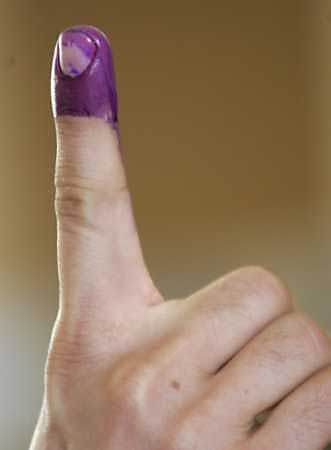Throughout 2012, whenever I was asked if we would win in November, my answer was consistently, “We will win if we can overcome voter fraud.” I just could not comprehend that the American people would willingly allow the current administration to continue in dismantling our Republic, piece by piece. But I was wrong, at least partially. While voter fraud was certainly a problem, tragically, voter apathy was something that I never saw coming.
We have all seen plenty of articles pointing to why Governor Romney lost the election, and it’s important to learn from our tactical mistakes. However, it’s also important to focus on the electoral process itself to ensure fair elections. Additionally, while I blatantly disagreed with the premise of having observers from the United Nations at US polling locations, it’s intriguing they reported they “were shocked to see that the requirement of a photo ID isn’t standard at voting locations throughout the country.”
Here are just a few thoughts of what needs to be addressed regarding our current electoral process:
- Government-Issued Voter Photo ID. While needed, it is one finger on the hand of fair elections and it’s only as secure as the integrity of the election clerk checking the ID’s. In fact, you could have a photo of Donald Duck on your license – and if the clerk is corrupt, they’d say, “Yep, that’s you, go ahead and vote.”
- Validation of U.S. Citizenship should be a key component in the Voter Registration process. Consider comparing voter applications and current registered voter rolls to exemptions for jury summons which claim the recipients are not U.S. citizens.
- Removal of deceased voters from the rolls. (Removal of people’s household pets from the rolls would be a bonus, but let’s not get picky!)
- A paper trail for all of our elections. Without it, there is not an effective recount procedure.
- One possibility: Have voters fill out paper ballots at the polling stations and then running them through the scanner, recording them electronically. Paper ballots would be saved as part of the election record.
- Another possibility: Have machines that print a receipt to be collected in a ballot box at each polling site. Each receipt should have a unique number that is also recorded on the machine to help prevent entire boxes of receipts being replaced.
- Any system is vulnerable if there is not a paper backup of the vote. Electronic data is easily manipulated and it has been done on both sides of the aisle. This is why it is critical that we stop-gaps in place to combat voter fraud. Consider this testimony from 2004.
- Thumbprint ID as an additonal requirement to vote. We currently have to provide it in order to receive a Driver’s License, to cash a check, to
 get something notarized, etc. Third World countries use a fingerprint to vote, but for some reason, we don’t take it that seriously here. All that is required is a small peripheral device that connects to the computers at polling stations. *My code name for this effort is the Purple Finger Project and I spoke to several legislators in Austin last legislative session. However, most just wanted to get basic Voter ID passed.
get something notarized, etc. Third World countries use a fingerprint to vote, but for some reason, we don’t take it that seriously here. All that is required is a small peripheral device that connects to the computers at polling stations. *My code name for this effort is the Purple Finger Project and I spoke to several legislators in Austin last legislative session. However, most just wanted to get basic Voter ID passed.
- It’s important to note that I would not advocate for a national ID based on a thumbprint only as there are too many pitfalls associated with someone assuming your ID. (Yes, it’s technically possible).
- Using thumbprint ID should be considered as a compliment to a government-issued photo ID.
The Gujarat Secondary and Higher Secondary Education Board, or GSEB, is a government of Gujarat body charged with determining the state's secondary and higher secondary educational system's policy, administrative, cognitive, and intellectual direction. GSEB 11th Exam Pattern 2023 Academics, Examinations, and Research and Development are among the Board's main responsibilities. The main academic task of the GSEB is to prepare a marking scheme for secondary schools as well as to recommend text books to be taught in both government and
ReplyDelete